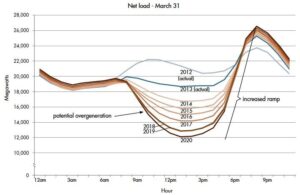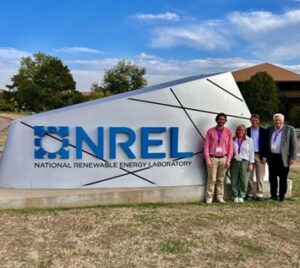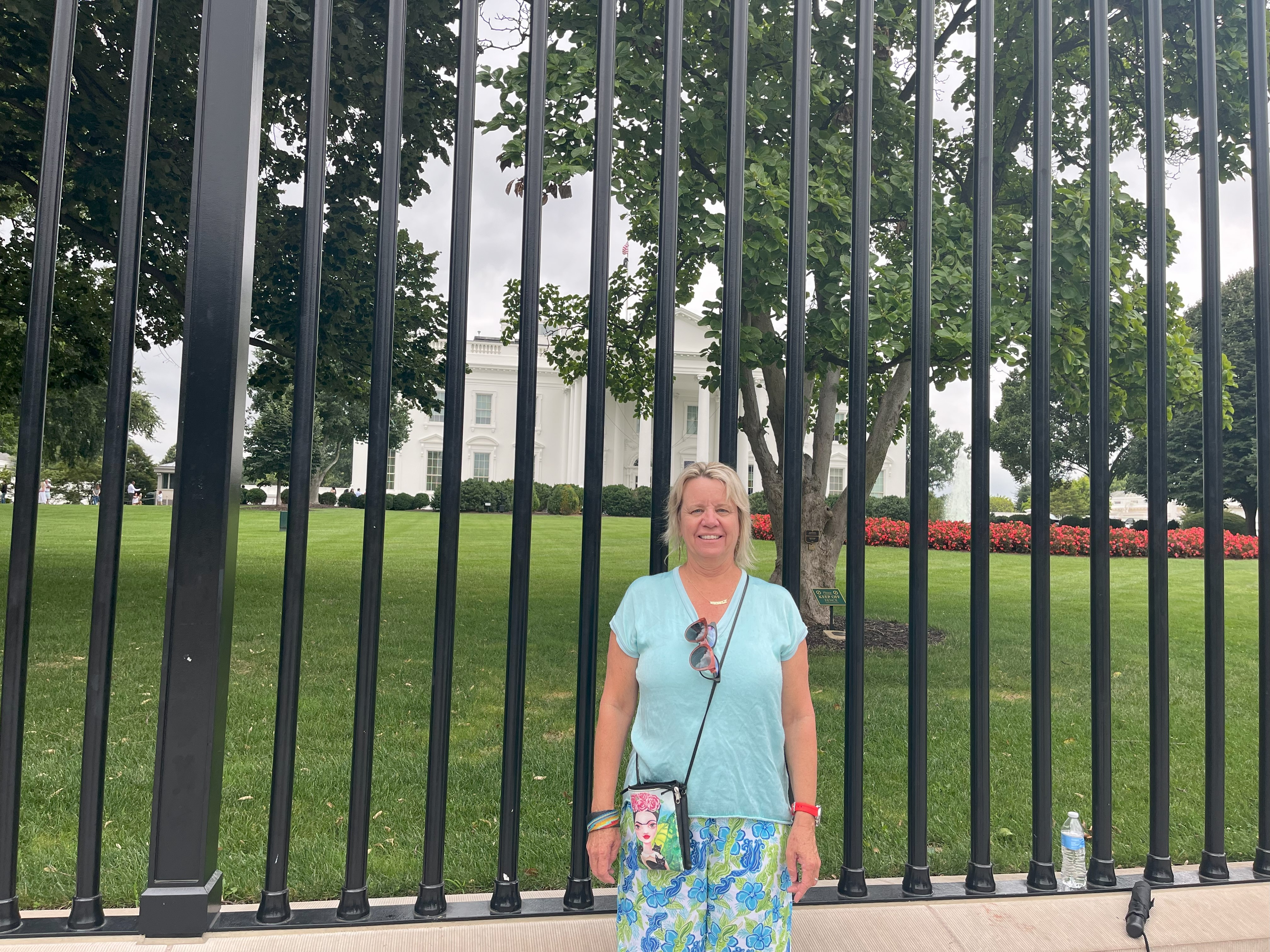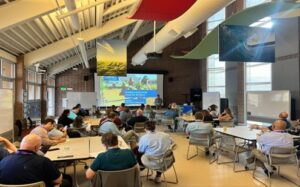Teachers Learn About the Tradeoffs of Renewable Energy Future

- >
- Teachers
- >
- Teachers Learn About the…
October 22, 2024
Amanda Stiglbauer, FTE mentor teacher, summarizes FTE’s conference on the tradeoffs associated with renewable energy. This special topic conference, held annually, is for teachers who’ve previously attended FTE programs.
Thirty-six teachers from around the country and Canada attended FTE’s conference, Clean Energy: How Do We Get There and What Are the Costs?, October 10 – 12, 2024. Held in partnership with the National Renewable Energy Lab (NREL) in Golden, Colorado, teachers heard from leading researchers and professors on the challenges of transitioning the American economy from fossil fuels to clean, renewable energy sources. This program is part of FTE’s efforts at promoting excellence in economic education by building the content knowledge of economics educators.
The Clean Energy Conference kicked off with a keynote address by Dr. Bryan Leonard, Associate Professor and Chair of the School of Energy Resources at the University of Wyoming. He introduced participants to the trade-offs of replacing non-renewable resources with clean energy sources such as solar, wind, hydro, and geothermal. An example of the challenges he discussed was the “Duck Curve” which plots electricity demand and solar energy availability. The issue, Dr. Leonard pointed out, is that peak demand for electricity is during the morning and evening hours when the sun doesn’t shine. Although this “Duck Curve” is a potential roadblock for relying on solar power, Dr. Leonard also discussed efforts to improve energy storage technology to overcome this challenge.

Dr. Leonard’s talk was followed by a day-long visit to the National Renewable Energy Lab (NREL). Teachers enjoyed a tour of NREL, which boasts indoor and outdoor laboratories devoted to the study of renewable energy, sustainable transportation, and energy systems integration.
After the tour, teachers heard from leading experts on renewable energy. Tom Mason, the NREL Education and Outreach Program Coordinator, laid out challenges the lab focused on as the nation approached the net – carbon zero goal in 2050. These include:
- Electrification: shifting away from fossil fuels for heating, cooking, and mass transit.
- Economic development: mitigating the uneven distribution of benefits from this initiative.
- Energy shortages: national and international conflicts can serve to amplify these.
- Energy justice: how to ensure the marginalized are not left behind?
- Cyberthreats: with more on automation, machine learning, and AI, the power grid is more susceptible to hacks.
The afternoon was highlighted by talks by NREL researchers Dr. Max Brown on the Impact of the Inflation Reduction Act (IRA) on Energy Policy and Dr. Alberto Solis and Dr. Andre Avelino on Jobs & Economic Development. From these talks, participants learned about the extensive computer modeling used by scientists better understand the issues of transitioning to renewable energy. Teachers also learned that IRA provided the largest commitment by the federal government in American history, over $430 billion, to lower energy costs, stimulate clean energy innovation, and try to position the United States as a leader in clean energy manufacturing.
The visit to NREL concluded with a lecture by Dr. Dan Kaffine from the University of Colorado titled The Intermittency Problem. In his talk, he examined the costs of different energy sources, and included a discussion on why renewable energy is generally a near zero marginal cost energy source that still faces challenges because it cannot be dialed up on command to meet demand. He pointed out that utilities still require ramping from conventional fossil fuel powered stations in response to uncertain and volatile renewable energy supply.
The conference wrapped up on Saturday, with talks by Dr. Selena Gerace from the University of Wyoming and Dr. Grace Wu from the University of California, Santa Barbara on Siting, Transmission, and Environmental Opportunity Costs. Dr. Gerace discussed research in carbon sequestration, both its potential and the barriers to implementation. In addition, she highlighted the possible negative impact on employment on many Wyoming communities that are dependent on the fossil fuel industry. In her lecture, Dr. Wu addressed potential environmental impacts of large wind and solar farms. Bird strikes at windfarms, the total land area needed for solar power, as well as siting impacts of offshore windfarms were covered during her session.
Attending teachers also collaborated in small groups to evaluate the costs and benefits of the transition to clean energy and the applicability of the content to high school students. Teachers found the most natural place to incorporate the lessons learned were:
- Positive and negative externalities
- Supply shocks and their impact on the overall price level
- The role of incentives and institutions
- Career clusters and demand for jobs
Overall, teachers expressed tremendous satisfaction with the content and valuable lessons they can share with students. On evaluations, 100% of the participants strongly agreed or agreed that they would recommend this conference to their colleagues.
Some comments from participants include:
This was truly hands on learning and so impactful! It was great hearing from the professionals whose job this is every day.
The tour was absolutely the highlight of that day – I’m VERY impressed with all the ongoing projects. I want to look more at local projects they have available for Denver-area schools.


Empowering Educators: Michele Mar’s Journey with FTE
February 26, 2026 FTE’s commitment to excellence in economic education starts with its teachers – and each year, we have…

The True Cost of Glory: What Economics Teaches Us About the Winter Olympics
February 19, 2026 As Norway celebrates its 15th gold medal and Italy rallies behind its home team’s nine golds at…

Making Economics Meaningful for Students
December 19, 2025 The Fund for American Studies’ Liberty and Leadership podcast features FTE’s own Amanda Stiglbauer, a longtime member of our…

